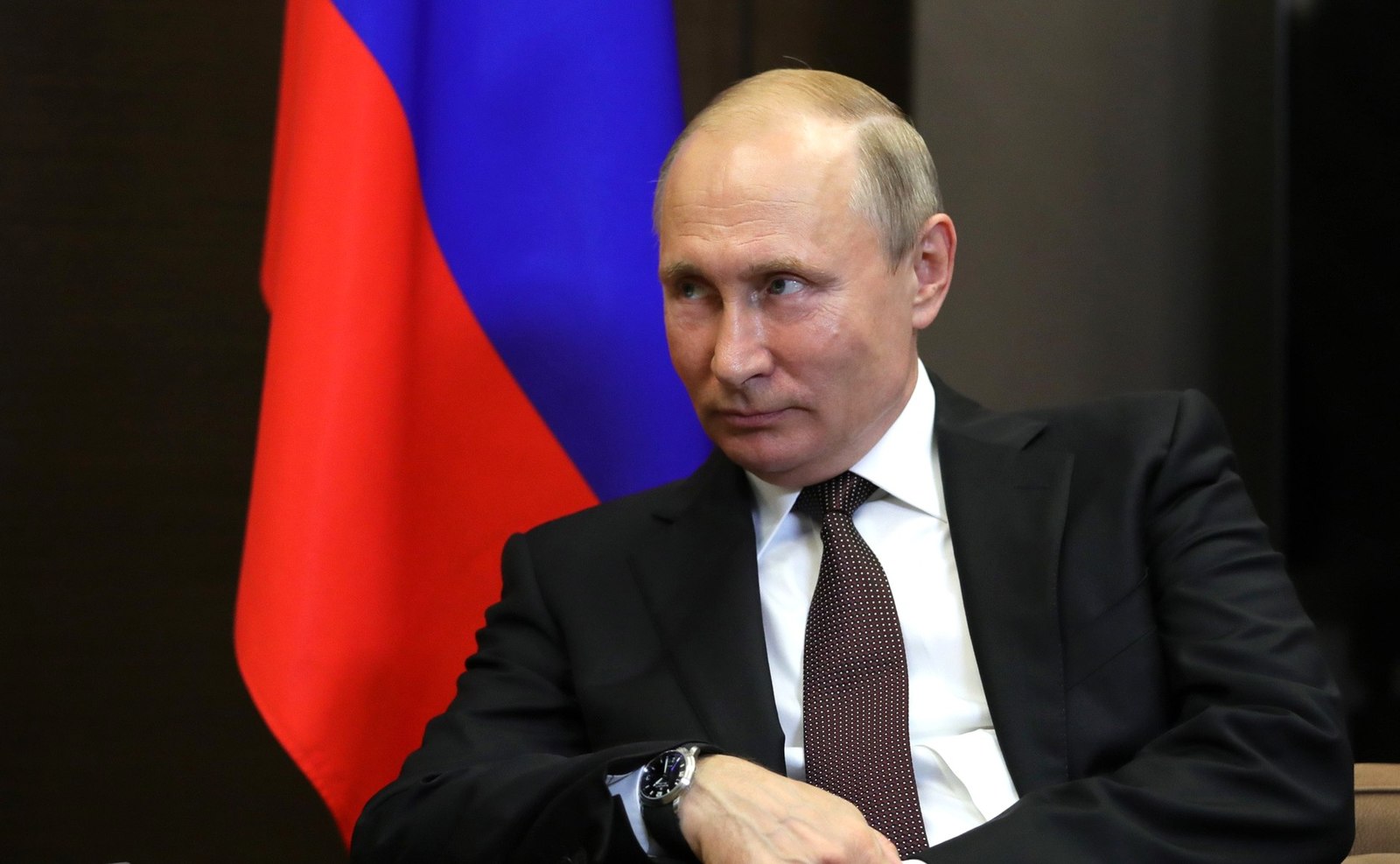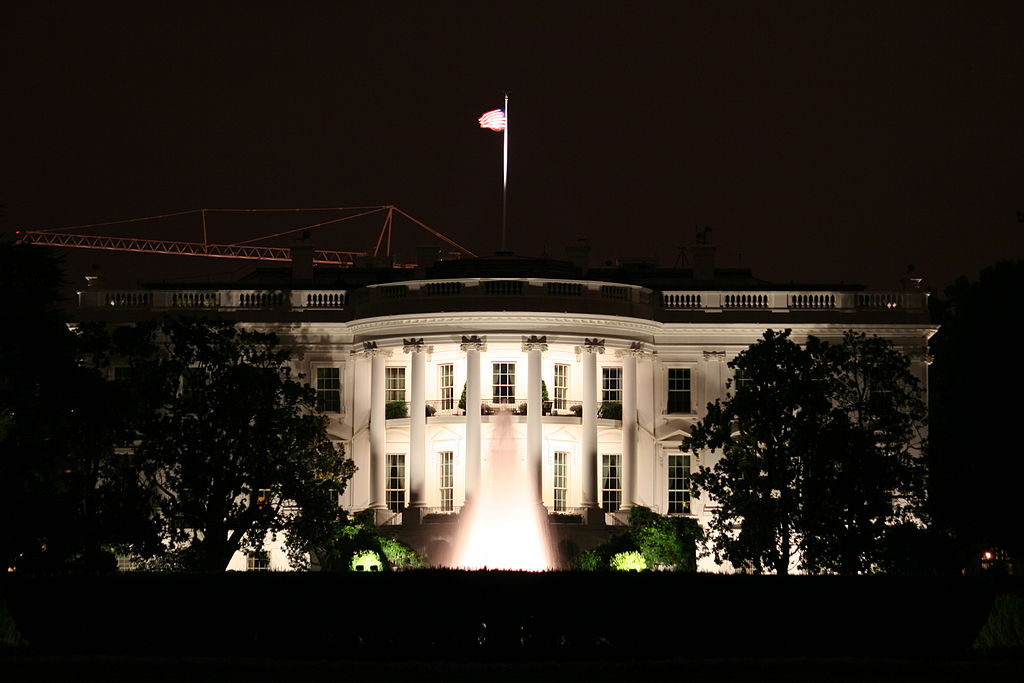The Sanctions-Busting Architects: Moscow’s Preparations for the West’s Sanctions
Moscow’s long practice and tolerance of illicit activities makes Russia well placed to bust Western sanctions. Two years on from Putin’s illegal invasion, what more can be done?

Published by The Lawfare Institute
in Cooperation With

On Feb. 23, President Joe Biden announced over 500 new sanctions on Russia and parts of its military production apparatus following the death of Russian opposition leader Alexei Navalny one week earlier. The U.S. was joined by the European Union, which issued its own set of sanctions against nearly 200 Russian individuals and entities. Although these sanctions—and the many that have come before them—appropriately demonstrate to the international community the West’s disapproval of Russia’s military effort and Moscow’s conduct more broadly, the effectiveness of these sanctions regimes will be severely limited unless the U.S. and its partners adjust their views about sanctions busting.
After more than two decades focusing on Iran’s and North Korea’s sanctions-busting machinery, Western officials have now turned their attention to Russia’s keen ability to evade economic, financial, and trade sanctions—whether busting through the oil price cap or illegally acquiring microelectronics to support its war in Ukraine. Two common questions percolating in foreign policy circles in Washington, Brussels, and London are what lessons can the West learn from Iran’s and North Korea’s years of sanctions evasion, and how can these governments apply those lessons to Russia. What these discussions fail to consider, however, is that it is Iran and North Korea that draw upon Russia’s decades of embargo- and sanctions-busting expertise—not the other way around. Consequently, by focusing too myopically on techniques and tactics, policymakers are missing the big picture when it comes to addressing sanctions circumvention.
From the earliest years of the Cold War through the dissolution of the Soviet Union, Russia has shown itself to be extremely capable of procuring embargoed Western technology. The post-Cold War era saw oligarchs exploit loosely regulated aspects of the global financial system to move, hide, and launder wealth, while those engaged in organized crime and illicit arms dealers flourished during the 1990s in an environment tolerant of criminality. The net effect is a long history of evading restrictive measures and a well-oiled machine capable of circumventing Western sanction regimes.
To effectively target Russia’s ability to circumvent Western sanctions, the West must focus on dismantling the infrastructure that permits transnational crime to flourish, better integrate their individual sanctions regimes, and close long-standing gaps in global trade and finance regulations.
From CoCom to Orlan
The U.S. Department of Justice in August 2023 indicted a Russian-German national for his role in an expansive illicit procurement network designed to supply Russia’s war machine with export-controlled microelectronics. The indictment is only the latest in a growing series of enforcement actions by Western officials trying to fix a leaky export control and sanctions regime targeting Russia’s military industrial base.
But Moscow’s ability to acquire needed parts covered by sanctions should not be surprising. From the earliest days of the Soviet Union, Moscow has been dependent on imported technology. In the aftermath of World War II, as East-West tensions unfolded, the U.S. and key Western allies established the Coordinating Committee for Multilateral Export Controls (CoCom)—an early attempt to prevent Western military technologies from entering the Eastern Bloc, primarily the Soviet Union.
The informal nature of the CoCom, its lack of enforcement mechanisms, and diverging interests between the U.S. and its European allies led operatives in Moscow and Western businesses to easily circumvent the West’s restrictions and embargoes. Often, controlled technology flowed into the Soviet Union via reparations from Germany, across the initially porous inner German border and through the Warsaw Pact states, and through other loosely regulated hubs of convenience that were not strictly CoCom members, such as Hong Kong and Switzerland.
While the Soviet Union’s procurement of restricted technology and machinery was once a highly secretive affair, now-declassified reports shed new light on the methods and tactics the country used to evade Western controls. A CIA report from 1977, among others from that time, describes transhipment through third-party intermediaries, the use of fraudulent shipping documentation, and the use of shell companies to obtain integrated circuits and semiconductors from the West.
One of the most successful tactics, according to the report, was Moscow’s exploitation of legitimate Western firms and falsified end-user certifications. In essence, Western firms would sell restricted technologies to legitimate and approved buyers in foreign countries, only to have those technologies transhipped to the Soviet Union. This might sound familiar.
A December 2022 joint investigation by the Royal United Services Institute and Reuters detailed how Russia has evaded Western export controls and sanctions during the war in Ukraine to acquire microelectronics for its unmanned aerial vehicles (UAVs)—including the Orlan-10—which the country has used with devastating effectiveness. Mirroring its Soviet-era methods, Moscow has relied on overseas, state-backed procurement networks to illegally acquire export-controlled technologies often manufactured and produced by legitimate Western firms. As the Orlan report notes, Russia has used entities based in the United States, Europe, China, South Korea, and Hong Kong to procure Western technologies for the UAV system.
The number of these cases keeps growing and is reflected in U.S. designations. Just recently following Navalny’s death and marking two years since Putin’s invasion, the U.S. Department of Commerce added over 90 companies to its denied entities list for helping Russia obtain restricted microelectronics, continuing to highlight the difficulties of export-control enforcement. The Treasury and State Departments also added over 500 entities to its sanctions lists.
The Moscow "Mafiya"
In a 2001, William Weschler, former special adviser to the U.S. secretary of the treasury during the Bush administration, described the growing risks of transnational crime and corruption, noting that “[n]owhere was this more evident than in the post-Soviet states. Funds from organized crime, government kickbacks, widespread tax evasion, the rape of natural resources, and old-fashioned legal capital flight all went to banks promising secrecy.” He further notes that in 1998, in the midst of the ruble’s financial crisis, over $74 billion moved from Russian banks to offshore havens, like Nauru and Cyprus.
By the early 2000s, Washington was taking note of Russian President Vladimir Putin’s burgeoning relationship with the country’s oligarchs—the prominent businessmen who accumulated billions of dollars in wealth during Russia’s economic liberalization throughout the 1990s. This prompted concerns over the rise of a perceived “mafia state,” the influence of its capture of strategic industries, and the role that the international financial system played in facilitating corruption, tax evasion, and money laundering.
A common scheme for some of the country’s largest enterprises was to move profits offshore to jurisdictions like Cyprus, through complex shell companies, only to return the money disguised as foreign investment, which was taxed at lower rates. In fact, a 2019 report by the International Monetary Fund found that nearly 25 percent of Russia’s real foreign direct investment was actually domestically owned—a truly massive share compared to mostly negligible amounts in developed countries.
The cheap sale of state resources in the early 1990s also saw the growth of state-connected smuggling operations, such as the global arms trafficking operation overseen by Viktor Bout. Bout took advantage of cheap cargo planes to run a logistical operation moving cheap arms to warlords, dictators, terrorist groups, and war zones around the world. He too relied on the infrastructure and laxity facilitating the more legitimate side of globalization—registering companies and planes in jurisdictions with weak oversight and exploiting loose regulatory environments and jurisdictions rife with corruption.
Lessons Learned
The overall takeaway is that Russia has benefited from decades of honing its smuggling, illicit procurement, and money laundering craft. Asking what Russia can learn from sanctions evaders like North Korea and Iran is the wrong question. Rather, experts and policymakers should be asking why has Russia—and its renewed partners North Korea and Iran—been able to continue to exploit the same trade and financial infrastructure over the past 30 years?
The answer is neither convenient nor comfortable for the West. The global infrastructures that allow Russia, Iran, and North Korea to skirt sanctions are the same that allow narcotics trafficking, terrorist financing, and corruption, among other illicit industries, to proliferate and flourish. Leaky export-control regimes, jurisdictions that permit anonymous or pseudo-anonymous corporate structures, and weak legal institutions are all key contributors.
These problems are not new or unknown to policymakers.
Over the past two decades, international organizations such as the Financial Action Task Force (FATF)—the international body responsible for setting anti-financial crime standards—have become increasingly influential and vocal in establishing robust anti-money laundering norms and bringing much-needed attention to threats to the global financial system. In April 2022, the FATF published its “Report on the State of Effectiveness and Compliance With the FATF Standards,” which shows that, overall, countries have made significant progress increasing technical compliance with its anti-money laundering recommendations—satisfactory compliance has risen to 76 percent, compared to 36 percent in 2012.
But it is important to recognize that Russia is a criminal state and has little regard for a rules-based system. In February 2023, the FATF suspended Russia’s membership in the organization, noting that Russia’s actions “run counter to the FATF core principles aiming to promote security, safety, and the integrity of the global financial system.” While this can be viewed as a significant political move, it has about as much pragmatic effect as the FATF asking Pablo Escobar’s drug cartel to implement anti-money laundering standards.
Russia will continue to do what it has shown it is fully capable of doing for decades—finding and exploiting weak points within global trade and financial systems. Unfortunately, there is no quick fix. Time and again, strong legal and democratic institutions prove the best antidote to curing the rot that permits transnational crime—including the circumvention of sanctions—to spread.
What can be done in the short term? First, states imposing sanctions against Russia should broaden transnational enforcement cooperation—especially in areas that may not be directly associated with sanctions. Consider, for example, the Global South’s general reluctance to implement Western sanctions against Russia. Rather than coaxing or threatening these countries with extraterritorial sanctions, substantive engagement over counter-transnational crime enforcement may ultimately help achieve the same objective.
Even China recently noted its willingness to enhance bilateral cooperation, share intelligence, provide mutual legal assistance, and hunt down and recover illicit assets related to transnational organized crime. While these are areas not directly related to sanctions implementation, they are inextricably tied to the infrastructures that enable Russia’s sanctions circumvention.
Second, the corporate service providers, attorneys, and accountants that Russia and others rely on to circumvent sanctions should be held to account. The Biden administration recently announced its intention to target financial institutions anywhere in the world that facilitate significant transactions that contribute to Russia’s aggression in Ukraine. While it remains to be seen whether and to what extent the White House makes good on its threats, the other enablers of Russia’s war machine should be included in the crosshairs.
In sum, focusing on the “lessons learned” from implementing sanctions against Iran and North Korea to fortify sanctions against Russia may lead to sanctions myopia. Russia’s long history of embargo-busting, exploitation of the global financial system, and criminal state capture show the country is more than capable of circumventing Western-imposed sanctions. However, closing loopholes that facilitate smuggling, money laundering, and transnational crime will help sanctions to bite across the board.


.jpg?sfvrsn=5a43131e_9)


